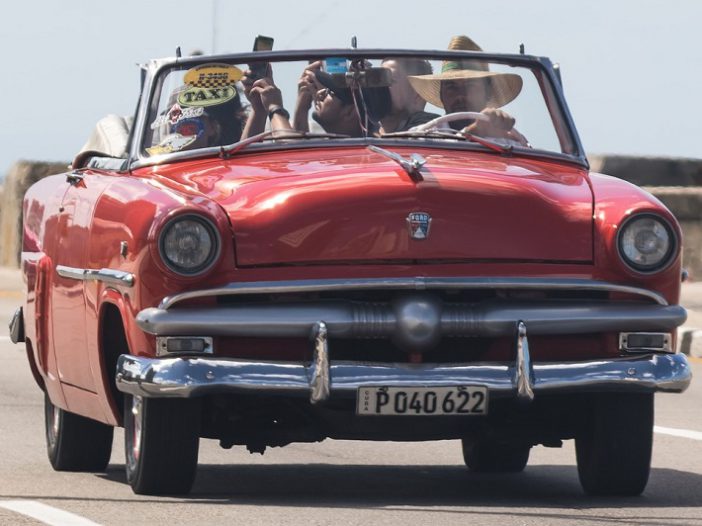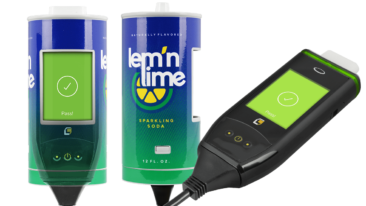
According to the Insurance Institute for Highway Safety, the Fourth of July is the deadliest day of the year, a title that it has consistently held over a five-year period. Every July 4th sees about 118 lives lost to car crashes, which is about 28 more deaths than the overall average daily number of traffic deaths from 2010 to 2014.
Although not all crashes are caused by drunk driving, alcohol still plays a major part in these accidents. The IIHS found that about 47 percent of the traffic deaths on July 4th involved at least one driver, bicyclist, or pedestrian with a blood alcohol concentration of 0.08 or above.
That trend with drunk driving tends to extend to most of the summer. With the weather so nice, more people out and about, and greater opportunities to hang out with your friends and family, summer offers plenty of risk for imbibing a little too much. While there’s nothing wrong with enjoying an adult beverage, driving after that drink could lead to some serious problems. Assuming you don’t get into an accident that hurts you or someone else, you also run the risk of getting pulled over and getting charged with a DUI/DWI, which can put a real damper on your summer fun. Let’s take a closer look at DUIs and some easy ways that you can avoid them this summer.
Understanding BAC and DUIs
All DUI charges start way before you actually get pulled over or arrested. It all starts with your first drink and your BAC. Your blood alcohol concentration or content refers to the amount of alcohol that is in your system, expressed as a percentage that measures the amount of ethyl alcohol (in grams) per 100 milliliters of blood. For instance, a BAC of 0.05 means that every 100 milliliters of blood contains 0.05 grams of alcohol. All states currently set their legal BAC limit to 0.08 percent. Your blood alcohol concentration can be measured through your blood, breath, or urine.
But why is blood alcohol content even necessary? Your liver is responsible for metabolizing alcohol. Generally, the average person’s liver can break down about one alcohol drink per hour. Drinking more than one drink per hour results in a higher blood alcohol concentration that will inevitably take longer to break down.
The fact is, not everyone reacts to the same amount of alcohol in the same way. BAC offers an easy way to quantify the amount of alcohol in a person’s system and measure their “drunkenness”. You and your friend may have had the exact same drink, measured to the exact same amount of alcohol, but your BAC may be completely different. This can come down to a wide range of factors, including body composition, gender, liver health, and genetics.
Reasons You Should Avoid Driving Under the Influence
Really, the main reason you should avoid drinking and driving is that it endangers you and everyone around you. Driving a car of any kind involves a great deal of attention combined with an awareness of your surroundings and a variety of small tasks that you probably aren’t even aware of when you are sober. Alcohol is a depressant, which means that it slows down functions in your central nervous system, including basic attention, coordination, and eye tracking. Enough alcohol can heavily impair your driving abilities, making you a huge liability when you’re on the road.
However, aside from endangering yourself, other drivers, and pedestrians, driving under the influence more often than not results in you getting arrested and charged with a DUI. DUI charges alone can come with a wide range of penalties, but most states also have other laws in place to discourage and penalize alcohol-impaired driving.
Many states have adopted admin per se laws. These laws are enforced by a state’s Department of Motor Vehicles (or related administration) and essentially allow an arresting officer to suspend or revoke your license if you either fail or refuse a chemical breath test.
Other states also have implied consent laws. Under these laws, it’s understood that by owning a driver’s license, you have automatically given any officer consent to administer a chemical breath test if they suspect you of driving under the influence of alcohol. By refusing to take the test, you are actively breaking implied consent laws and may be subject to various penalties, usually a license suspension or revocation.
Both admin per se and implied consent laws are in addition to any penalties you receive if you are found guilty of a DUI in court. This can result in a variety of other penalties.
Heavy Fines and Fees
DUIs are not cheap. From fines to court costs to impoundment fees, you may have to pay thousands of dollars for a DUI, and that’s assuming that it’s your first offense and that you have not hurt others or caused extensive damage to property. The costs associated with a DUI can quickly snowball, leaving you in heavy debt.
License Suspension
On top of suspensions from admin per se and implied consent laws, you may receive a suspension in court. All of those suspensions essentially stack up, meaning that you may not have driving privileges for a few years. That can be a big problem if you have school, work, or other obligations that require you to have a car. In some situations, courts may grant you a conditional license that come with strict limitations that only allow you to drive and from work or school.
Increased Insurance Costs
Having a DUI on your record is not great. It essentially designates you as a “high risk driver,” which can lead to massive increases in your monthly insurance premiums. Some insurance companies may drop you entirely if you have a DUI, which can further prevent you from driving, even when your suspension period ends.
Prison Time
Most first offense DUIs will not include a prison sentence (with some exceptions), but upon your initial arrest, you will likely have to spend some time in custody until you post bail. Either way, spending any amount of time imprisoned isn’t exactly a walk in the park, especially in the summer. You’re missing out on fun with friends and family, but you may also miss work and other obligations.
Court Dates
Court dates can be long and plentiful depending on your case. For most people, the first and only time in court will be during the arraignment, at which time the judge will:
- Read your charges
- Ask if you require a lawyer (if you don’t already have one)
- Ask how you plead
- Make any alterations to your bail
If you plead guilty, the judge will determine your punishment, and you generally shouldn’t need to appear in court again. If you plead not guilty, you will need to return for your preliminary hearing and trial. During the preliminary hearing, the judge determines if there’s enough evidence to even hold a trial. If not, the judge will dismiss the case. Otherwise, the case gets sent to trial, where you and your attorney will have to plead your case in front of a jury, who will then determine if you are guilty.
As you can imagine, the entire process can be extremely time-consuming, and as much as you can try, court dates will probably coincide with work days. That means missing out on work, which is a big problem considering all the fines that you need to pay.
Ignition Interlock Device
Many states have begun to implement ignition interlock device laws, even for first offense DUIs. Ignition interlock devices connect to your car’s ignition system and require you to blow into a mouthpiece before you can start your car. If the device detects a certain threshold of alcohol in your system, it will lock the ignition for a set amount of time.
Furthermore, ignition interlock devices will require periodic breath samples while you are driving. These are known as rolling retests and are designed to prevent you from having someone else blow into your device for you. If you fail or do not provide a breath sample, the device will log the event and trigger an alarm (beeping horn, flashing lights) until you turn off your engine or provide a clean breath sample.
An IID is essentially an added safety precaution in the event that you do not completely lose your driving privileges after a DUI. While it’s great that you even have your driving privileges, having to use an IID every single time before you can drive and throughout your drive can get tiring and inconvenient really quick.
Avoiding a DUI
As you can see, getting a DUI can lead to a seemingly endless cycle of punishments and debts and inconveniences that can put a real damper on your wellbeing. Avoiding a DUI altogether is the best way to never have to deal with any of those punishments, but how can you avoid one this summer?
Keep Track of How Much You Drink
Remember that it takes about one hour to completely break down one standard drink. Keeping track of how many drinks you’ve had can help you determine how long you should wait before you get behind the wheel.
While amounts of alcohol can differ, especially in bars where bartenders are generous with their pouring, one “standard” drink contains about 14 grams of pure alcohol. That’s equivalent to:
- 12 fluid ounces of beer (about 5 percent alcohol by volume)
- 8 to 9 fluid ounces of malt liquor (about 7 percent alcohol by volume)
- 5 fluid ounces of wine (about 12 percent alcohol by volume)
- 1.5 fluid ounces of distilled spirits (about 40 percent alcohol by volume)
Space and Pace
It’s a good idea to space out your drinking and pace yourself. Between every alcoholic beverage, drink water or a non-alcohol alternative. Aside from pacing your drinking, this keeps you hydrated, which you’ll be thanking yourself for in the morning.
Always Have a Backup Plan
You should always have a backup plan for if you do end up drinking too much well into the evening. That means having a designated driver, keeping your favorite cab service ready, or pre-planning public transit routes.
Avoid Drinking Altogether
Although drinking is the great social lubricant, it’s not by any means the only way you need to have fun. The nice weather, the welcoming atmosphere, and the company of your kind and loving friends should be more than enough to enjoy yourself. There’s no reason to force yourself to drink if you need to drive later or if you simply don’t want to.
Sources:
- http://www.iihs.org/iihs/news/desktopnews/independence-day-ranks-highest-in-average-daily-crash-deaths
- https://uuu.lowcostinterlock.com/blog/ignition-interlock-faq/blood-alcohol-content-bac/
- https://www.dmv.org/automotive-law/dui/admin-per-se.php
- https://www.dmv.org/automotive-law/dui/stages-of-a-dui-case.php
- https://www.niaaa.nih.gov/alcohol-health/overview-alcohol-consumption/what-standard-drink

